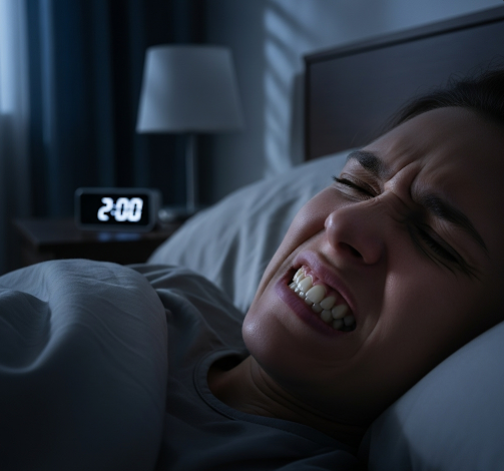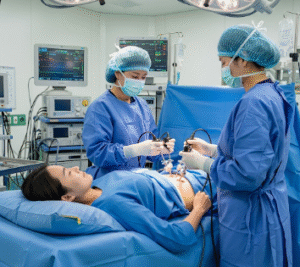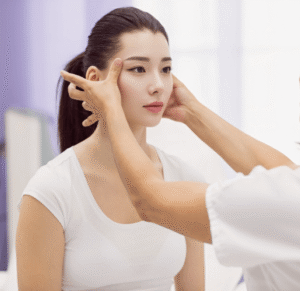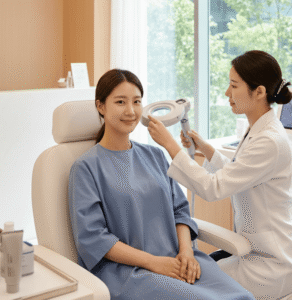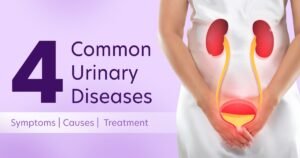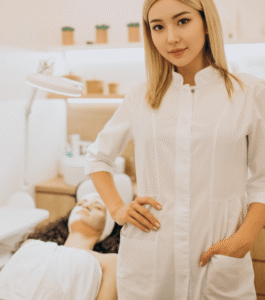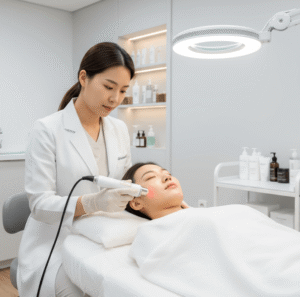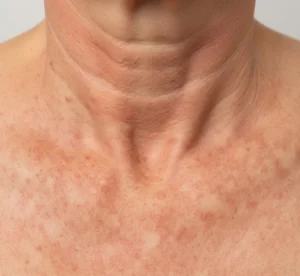Overview
Teeth grinding, medically known as bruxism, is a common condition characterized by the involuntary clenching, grinding, or gnashing of teeth. It can occur during the day (awake bruxism) or at night during sleep (sleep bruxism). Bruxism can lead to tooth damage, jaw pain, headaches, and other complications if left untreated. In South Korea, with increasing awareness about oral health, patients have access to advanced dental diagnostics, treatment options, and stress management programs to address bruxism effectively.
What is Teeth Grinding (Bruxism)?
Bruxism involves repetitive jaw-muscle activity that causes grinding or clenching of the teeth. This condition may be habitual or linked to underlying factors such as stress, sleep disorders, or dental misalignment. Bruxism often occurs unconsciously, particularly during sleep, making it challenging to detect without professional evaluation. Persistent bruxism can wear down tooth enamel, cause tooth fractures, and strain the temporomandibular joint (TMJ).
Symptoms
Common signs and symptoms of bruxism include:
- Grinding or clenching noises during sleep (often noticed by a partner)
- Flattened, fractured, or worn tooth surfaces
- Jaw pain, stiffness, or soreness, especially upon waking
- Headaches, particularly in the temples
- Earache or a feeling of fullness in the ears without infection
- Increased tooth sensitivity
- Difficulty or discomfort when chewing
- Tight or tired jaw muscles
- Damage to the inside of the cheek from biting
Causes
Bruxism is multifactorial and may be influenced by:
- Stress and anxiety: Emotional stress is a leading trigger for both awake and sleep bruxism.
- Sleep disorders: Conditions such as obstructive sleep apnea increase bruxism risk.
- Malocclusion: Misaligned teeth or an abnormal bite may contribute.
- Lifestyle factors: Excessive caffeine, alcohol, smoking, or certain medications.
- Neurological conditions: Disorders like Parkinson’s disease or Huntington’s disease.
- Genetic predisposition: Family history may play a role.
Risk Factors
- High stress or anxiety levels
- Poor sleep quality or sleep apnea
- Smoking or alcohol consumption
- Use of stimulant medications
- Certain personality types prone to hyperactivity or aggressiveness
- Age, with bruxism being more common in children and young adults
Complications
If untreated, teeth grinding can cause:
- Severe tooth wear, fractures, or loss
- Temporomandibular joint (TMJ) disorders with pain and dysfunction
- Muscle fatigue and chronic facial pain
- Headaches and migraines
- Gum recession and increased tooth sensitivity
- Damage to dental restorations such as crowns or fillings
Prevention
Preventive strategies to reduce bruxism include:
- Managing stress through relaxation techniques, counseling, or mindfulness
- Avoiding stimulants such as caffeine, nicotine, and alcohol especially before bedtime
- Practicing good sleep hygiene to improve sleep quality
- Addressing dental issues promptly with regular check-ups
- Using protective devices during sleep to prevent tooth damage
Treatment Options in Korea
Korea offers comprehensive approaches to diagnose and treat bruxism through dental and medical specialists:
Diagnosis
- Clinical dental examination to assess tooth wear and jaw muscle condition
- Patient history including sleep habits and stress levels
- Sleep studies to evaluate for sleep apnea if suspected
- Imaging such as X-rays or MRI to assess TMJ
Conservative Treatments
- Custom-made occlusal splints or night guards to protect teeth during sleep
- Stress management programs including cognitive-behavioral therapy and relaxation techniques
- Physical therapy and jaw exercises to relieve muscle tension
- Medication in some cases, such as muscle relaxants or anxiolytics
Advanced Treatments
- Botox injections to relax overactive jaw muscles in severe bruxism cases
- Treatment of underlying sleep disorders such as continuous positive airway pressure (CPAP) for sleep apnea
- Dental corrections including orthodontics or restorative procedures to fix bite issues
Complementary Approaches
- Acupuncture and traditional Korean medicine may be used adjunctively to reduce muscle tension and stress
Leading Clinics for Bruxism Treatment in Korea
- Seoul National University Dental Hospital
- Asan Medical Center Dental Clinic
- Samsung Medical Center Oral and Maxillofacial Surgery
- Yonsei Severance Dental Hospital

